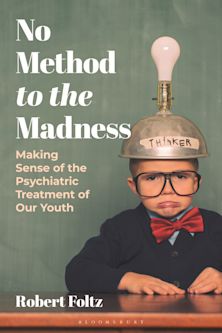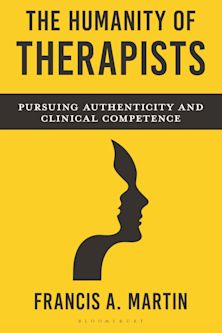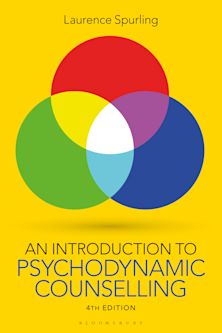Revenge
Narcissistic Injury, Rage, and Retaliation
Salman Akhtar (Anthology Editor) , Henri Parens (Anthology Editor) , April E. Fallon (Contributor) , Frederick Fisher (Contributor) , Daniel M.A. Freeman (Contributor) , Rama Rao Gogineni (Contributor) , Eve Holwell (Contributor) , Otto Kernberg (Contributor) , Kerry Kelly Novick (Contributor) , Barbara Shapiro (Contributor) , Melvin Singer (Contributor)
Revenge
Narcissistic Injury, Rage, and Retaliation
Salman Akhtar (Anthology Editor) , Henri Parens (Anthology Editor) , April E. Fallon (Contributor) , Frederick Fisher (Contributor) , Daniel M.A. Freeman (Contributor) , Rama Rao Gogineni (Contributor) , Eve Holwell (Contributor) , Otto Kernberg (Contributor) , Kerry Kelly Novick (Contributor) , Barbara Shapiro (Contributor) , Melvin Singer (Contributor)
This product is usually dispatched within 2-4 weeks
- Delivery and returns info
-
Flat rate of $10.00 for shipping anywhere in Australia
You must sign in to add this item to your wishlist. Please sign in or create an account
Description
Revenge: Narcissistic Injury, Rage, and Retaliation addresses the ubiquitous human wish to take revenge and settle scores. Featuring the contributions of eleven distinguished mental health professionals, it offers a panoramic and yet deep perspective on the real or imagined narcissistic injury that often underlies fantasies of revenge and the behavioral trait of vindictiveness. It describes various types of revenge and introduces the concept of a ‘good-enough revenge.’ Deftly blending psychoanalysis, ethology, religious studies, literary criticism, and clinical experience, the book goes a long way to enhance empathy with patients struggling with hurt, pain, and desires to get even with their tormentors. This volume is of great clinical value indeed!
Table of Contents
Chapter 1: Revenge: An Overview
Salman Akhtar, MD
Chapter 2: Green Wounds: Revenge as Preserver of the Self
Kerry Kelly Novick, AB, BA
Chapter 3: Revenge and Reparation: Thoughts About the Treatment of a Boy and His Family
Barbara Shapiro, MD
Chapter 4: ‘As the Twig is Bent, So Grows the Tree’: Reparation, Rage, and Resynthesis
Daniel M.A. Freeman, MD
Chapter 5: Revenge and Reparation: Loss and Restitution
Frederick Fisher, MD
Chapter 6: The Spectrum of Narcissistic Transferences
Otto Kernberg, MD
Chapter 7: Cautionary Tales: A Private Practitioner’s Experience Treating Severe Narcissistic Pathology
Melvin Singer, MD
Chapter 8: Three Literary Characters in Search of Revenge
Eve Holwell, BA
Chapter 9: The Ubiquitous Nature of Revenge: Biopsychocultural Perspectives
Rao Gogenini, MD, and April Fallon, PhD
Chapter 10: Narcissism, Rage, and Revenge: Concluding Commentary
Henri Parens, MD
Addendum
References
Index
About the Editors and Contributors
Product details
| Published | 15 Oct 2015 |
|---|---|
| Format | Paperback |
| Edition | 1st |
| Extent | 210 |
| ISBN | 9781442256903 |
| Imprint | Rowman & Littlefield |
| Illustrations | 1 table |
| Dimensions | 229 x 153 mm |
| Series | Margaret S. Mahler |
| Publisher | Bloomsbury Publishing |
About the contributors
Reviews
-
The cycle of humiliation, revenge, and counter-revenge is a central paradigm which plagues our species. Finally there is a fascinating study of this all too human phenomenon which draws on the insights of child development, psychoanalytic experience, great literature, and biological considerations. Written by premier clinicians and theoreticians, this book is both very rich in ideas and is very readable. Therapists at all levels of experience will learn much from this text and become more able to address these issues in treatment.
Ira Brenner, MD, Psychoanalytic Center of Philadelphia
-
Revenge is a ubiquitous human emotional experience, frequently fantasized, sometimes enacted, and yet it is all too rarely examined in depth. This book explores the relationship of revenge with narcissistic injury, rage, and retaliation. Sandwiched between an extensive overview of the topic by Akhtar and a critical examination of theories of aggression with case examples by Parens are eight excellent papers that range from relevant clinical case reports to literary and biopsychocultural perspectives. Indeed, as these contributors underline, the feeling of revenge can be either an adaptive response or pathological especially when enacted. Readers will gain in knowledge and therapeutic skills by delving into this stimulating and very worthwhile book.
Mary Kay O'Neil, PhD, Canadian Psychoanalytic Association



































